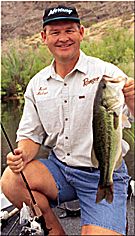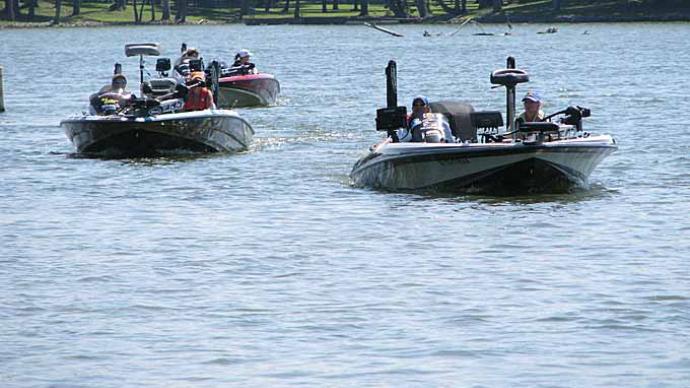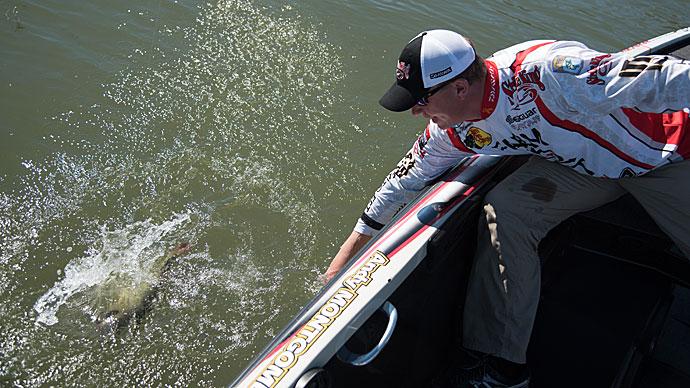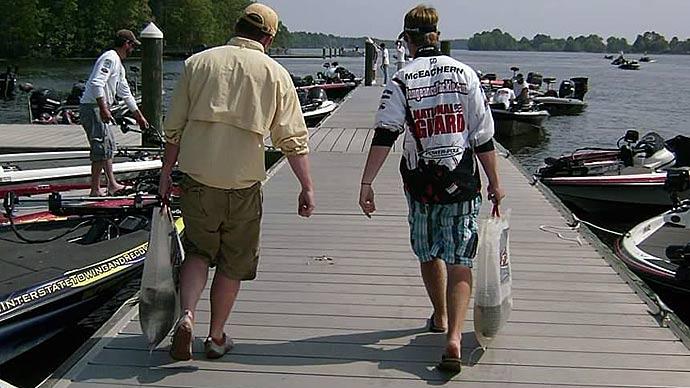
I am often asked what an angler needs to do to get started on the road of the professional bass angler? It's an interesting question since the answer varies from angler to angler. Each angler has his strengths and weaknesses, and each person has his own goals and dreams. It's a very personal thing, but there are a few steps each angler dreaming of hitting the tournament trail should take.
Initially, I suggest taking time to fish the amateur side of the tournaments. This will allow each angler to learn from a professional in a tournament environment. It's vital to understand the pressure anglers can feel when there is money on the line. In a tournament, you deal with the clock, weather, partners, and fishing conditions. By fishing the amateur side for a while, you can better understand how the professionals handle the pressure and work conditions instead of letting conditions work against them. As a non-boater, you can benefit from the pros you fish with.
You will learn what to do and many times, what not to do. In some instances, such as in a draw team tournament, the non-boater becomes an essential part of the team. I have known many instances where the non-boater was the key to a professional angler's success.
To begin with, start with your local club tournaments. These are inexpensive to compete in, closer to home, and they only have four to six tournaments each year. What a great way to get started, and you usually don't even need to own a boat. This will "get your feet wet," so to speak. You can get some experience in fishing tournaments without breaking the bank or spending the mortgage payment.
The next step would be to graduate to the B.A.S.S. Federation level. Here you will have the opportunity to fish against some pretty high-caliber anglers. You can get a good look at what these anglers are doing. The beauty of this level is that you still don't need to have a boat and can continue to fish as a non-boater, learning all you can before making a healthy investment in a new bass boat.
When fishing as a non-boater, take full advantage of the school you are attending. You are in a position to learn more about fishing here than anywhere else and at a much faster pace. Pay close attention to what the various anglers you fish with are doing. More importantly, learn "why" they do it.
Success in tournaments is based more on "why" rather than "what." Why was a lure change made, why a color change, and why has depth changed? "Why" is much more vital. Set aside the " what" and "where" and continually focus on the "why."
Before heading out on the water as a non-boater, spend a few minutes with your pro, ask what type of techniques or patterns you can expect, and adjust your tackle accordingly. Ask the pro if they think the same pattern will hold up all day or if there could be changes as the day progresses. There isn't room for you to bring every lure, rod, and reel you own into the boat, so cut your tackle down to the bare minimum.
Once you're out on the water, a little common courtesy goes a long way. You can take advantage of the time running from spot to spot. This is a great time to retie your lures, make lure changes, and have a drink or a quick snack. Save precious fishing time with such matters; you're not driving the boat, so why not get a step ahead of the game?
Many anglers let out a deep sigh when they have to fish from the back of the boat. Many times, that's the best place to fish from. I have learned many things from my back-seater. Unless your partner has a proven pattern consistently working, try to do things a little bit differently from your pro. Don't attempt to copycat the pro. You can pick up fish behind anyone, and many times you'll be the one to discover the winning pattern.
When you decide you're ready to head out on the lake in your boat, here are a few tips that will benefit you.
The biggest mistake new - and many experienced - tournament anglers make is, letting the pressure get the best of them. Like any other sport, developing your game plan is essential. How often have you watched a basketball or football game and watched a good team get a little behind, abandon their game plan, and then entirely fall apart? Fishing is the same way.
During your pre-fish, you develop your game plan and need to stick to it during the day. If the tournament is longer than one day, you may change your strategy before the next day, but not in the middle of the day. While there may be times you will get away with it, overall, you tend to falter when you change. Don't allow the pressure to alter your game plan. Focus on the game plan development the night before and stick with it.
One of the greatest downfalls of a tournament angler is "dock-talk." Don't allow talk to change your strategies. The only thing that counts is the scoreboard. It will let you know if you need to rethink your strategy.
Of course, the most crucial element for the tournament angler is to keep it simple and fun. It's far too easy to get caught up in the pressure and lose sight of the wonderful experience you are having. If you keep it simple and fun, you'll enjoy a higher degree of success. Good Luck, and maybe I'll see you on the water.
Reprinted with permission from Bass West Magazine



